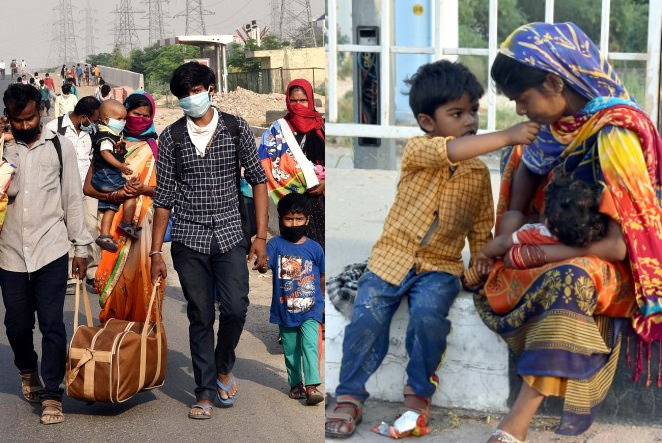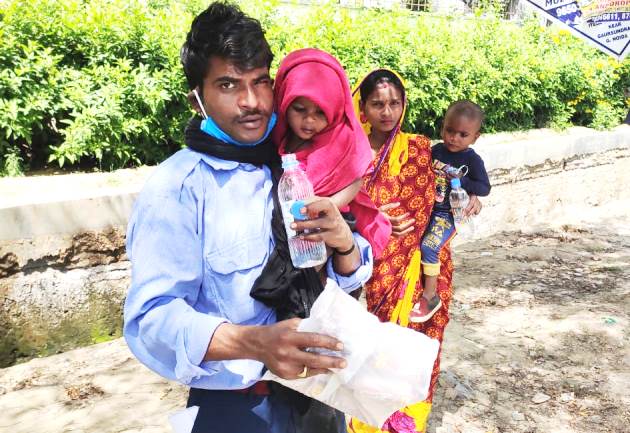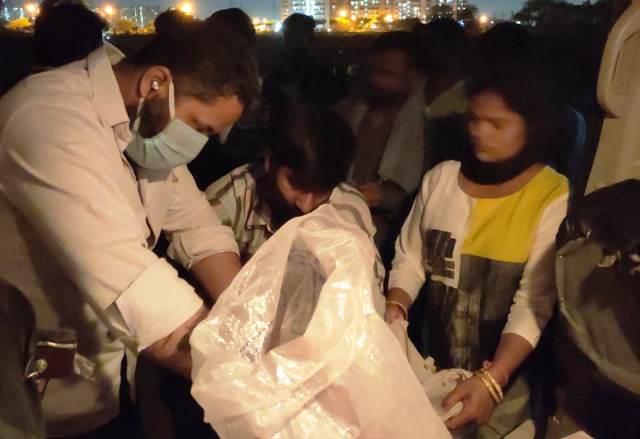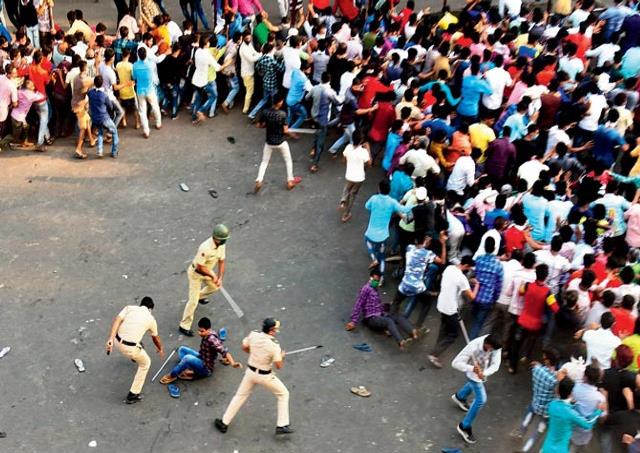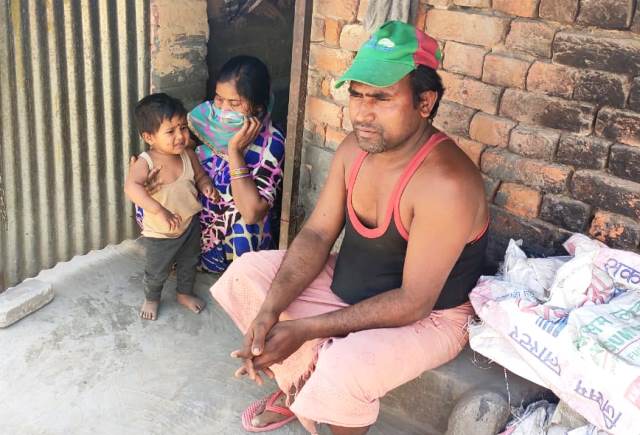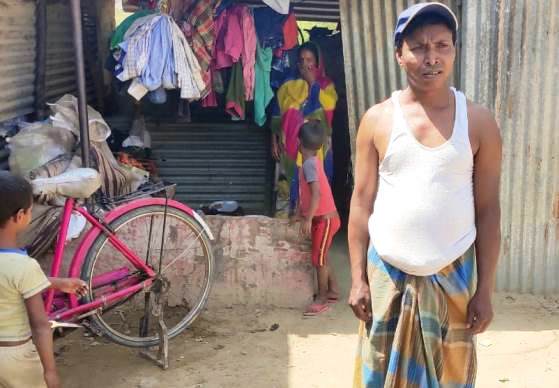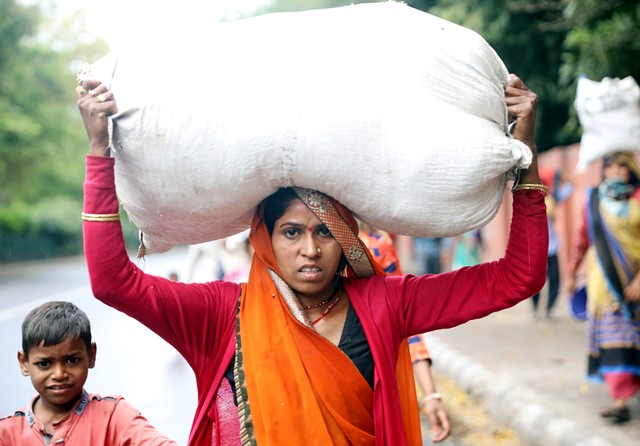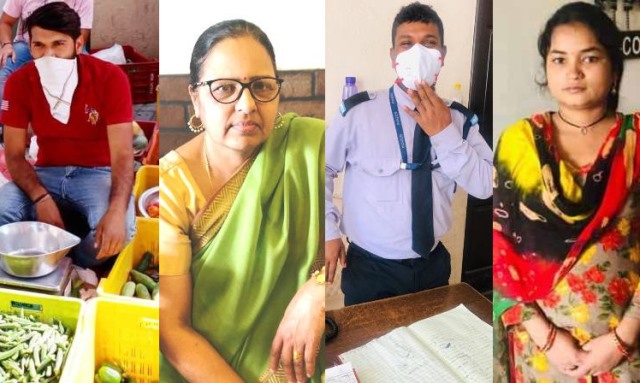Is India ready for a
withdrawal of the 21-day lockdown, perhaps a partial and phased out lockdown?
Will the experts tell the politicians to go ahead with a withdrawal, or, will
they ask them to continue the status quo because it is the safest comfort zone?
Or, will the politicians call the shots finally?
Low on confidence, will Prime Minister Narendra Modi, high on hyperbolic monologue and populist, unscientific declarations, move one step forward and two back? Universally decried after the catastrophic botch-up of the nation-wide lockdown without an iota of preparation and taking all and sundry by surprise, besides compelling tens of thousands of poor, hungry, thirsty workers, their mothers and wives, and little children on unending highways, pushing the pandemic into the twilight zones of the hitherto untouched rural areas of the Hindi heartland, the prime minister, certainly, just can’t make another gigantic mistake.
Will the partial withdrawal be determined by factors of health, and social and psychological well-being, in India’s vast landscape, with no uniform human development index indicator? Or, will it be compelled because of the doddering economy and a massive crisis staring at its face, as warned by top economists, world economic bodies and the international media, including Raghuram Rajan, Nobel Prize winner Abhijit Bannerjee, Jean Dreze among others?
As of now, barring the role model state of Kerala at the far-end of the map, which has mapped out its withdrawal from the lockdown in four phases already, and where the pandemic is actually flattening out (apart from Maharashtra, because of efficient testing and health care, and, ironically and, reportedly, in Uttar Pradesh, due to abysmal and transparent lack of testing and health facilities), a large chunk of the so-called ‘Bimaru states’ want to stick to the ‘comfort zone’ of prolonged lockdown and enforced curfew, because they really have nothing to show.
With allegations of data being controlled and fudged, as in the past, the BJP governments at the Centre and in states, do not really have a great answer sheet to prove their credibility in terms of prevention, control, care and future projections. Even in Pakistan and Bangladesh, there is more testing happening compared to India.
Indeed, Kerala chief minister
Pinarayi Vijayan, unlike the prime minister who has not done a single press
conference till date, is frank and candid with his regular briefings with the
media, giving meticulous details about the health conditions of patients, the
numbers inside quarantine, the success rates, the condition of migrants, the
problems to be tackled and how the collective civil society with the government
is trying to overcome them in the state in a decentralized manner.
Sources on the ground in Kerala, as in Bengal and Maharashtra, are confident that the lockdown will be lifted partially in the days to come. Only those states like UP, Chhattisgarh, Madhya Pradesh, Telengana and Bihar, whose report cards are not really shining, are reportedly pushing the envelope for the lockdown to continue. It is like when democracy is dumped in the garbage can, there is no option but to ‘indulge’ in a military clampdown and communication lockdown, as in Kashmir after August 5, 2019.
There are several reasons
why the lockdown should be partially lifted, as argued by top, well-meaning
economists, and as whispered softly in the corridors of power and big business.
The harvesting season
begins during the ‘auspicious’ season of April and goes on till July. With
agricultural grown in dire straits, and almost static at 1 per cent plus, there
is no option but to ease the lockdown in rural India. Indeed, there are two immediate
and long-term problems stalking the agriculture scenario: huge buffer stocks of
foodgrain which are still to be distributed, and the reverse migration of
agricultural/landless workers back to their economically stagnant village
landscapes.
For instance, where will
states like Punjab and Haryana find the workers in the harvesting season with
most of them having fled to the safety of their village homes in the face of
the lockdown with stark economic and social insecurity stalking them in their
destined places of migrations? Besides, according to Dreze, the foodgrain
stocks might increase beyond a huge 80 million tonnes – with mass hunger and
unemployment as a simultaneous and ironical factor among millions below the
poverty line.
The urban economy has all but tanked. It’s a fact, and this was a process underway much before the pandemic. The construction and real estate industry is as starkly pessimistic as the empty high rise buildings on the Noida Expressway, and big industrial projects, still incomplete or languishing. This industry also employs the bulk of construction workers. The other big industries like Information Technology and manufacturing are not looking too good either. Unconfirmed statistics point out that the tragic scenario of joblessness, highest in the last 45 years, might have increased manifold post-lockdown, and this includes the urban educated youth.
Demonetisation and GST
has already broken the backbone of the small-scale industries, small business
enterprises and trade. With civil aviation, railways and transport suspended
indefinitely, India just does not have the mechanism to go for an extra push to
its doddering economy, despite the optimism and vision displayed by the likes
of Raghuram Rajan. Can the prime minister, his finance minister with no big
feather in her cap, and his cabinet ministers push the card to its optimum best
in the given circumstances?
This is a question that
is stalking the central government currently. Several high powered cabinet
meetings chaired by Defense Minister Rajnath Singh have reportedly been looking
at possible and plausible options. For the first time, perhaps, state chief
ministers have been consulted – who, truly, have been fighting it out on the
ground with little or no help from the Centre.
Every day they are beseeching the Centre for more aid, PPEs, ventilators,
insurance for health workers, basic health infrastructure and direct support.
Surely, the central government is now reaching out to the states, with central
funds, and pro-active measure. Another big financial package is reportedly on
the cards.
The prime minister has
cut a bad record and he has no option but to go for a national consensus with
the chief ministers, and thereby try to learn a few lessons from Maharashtra,
Tamil Nadu, Bengal and Kerala in terms of anticipation of a global crisis, the
dynamic art of crisis management and practical and long-term solutions.
Clearly, there are
suggestions to open certain sectors, with partial employment, keeping physical
distancing and health precautions intact. This can very well happen in key
public and private sectors like civil aviation, certain crucial industries like
iron, steel, oil, IT, construction and coal, and find a balanced synthesis
between work-from-home and actual professional activity at work stations. Also,
there are suggestions to open the discourse to the professionals themselves –
those who are willing to join the work stations should be allowed to do so with
adequate precautions, health and life insurance, and safe mobility.
However, the harvesting
season and the huge buffer stocks remain a cause of concern. Why the government
should still continue to hesitate to push for free distribution of foodgrain
among the vast masses remains a dark mystery. Indeed, if the farming community
goes into a crises, this will be yet another epidemic of sorts, for an economy
so dependent on agriculture.
In that sense, there
seems logic in the rational argument that the lockdown should be lifted
partially and in safe areas, away from the so-called ‘hotspots’, which are around
250 districts in the entire country, with high or low grades of the disease spreading. Around 400 plus districts
in India are still presumed to be safe.
With the pandemic
flattening gradually, creative, brave and imaginative solutions are required.
China has opened its transport and public spaces with caveats in Wuhan, the
epicenter of the pandemic. So, will India move forward, or continue to stay in
the comfort zone of an eternal lockdown?
